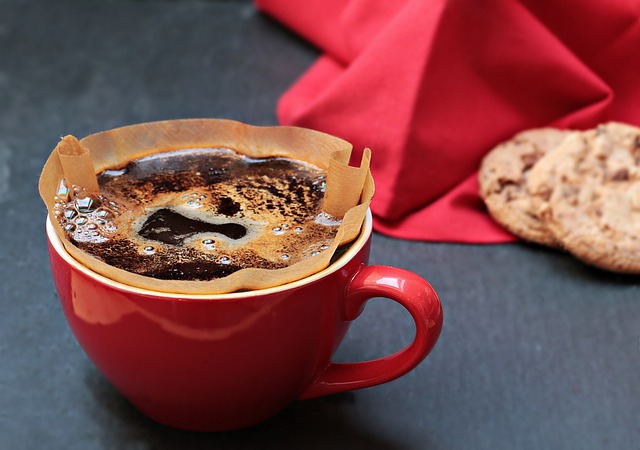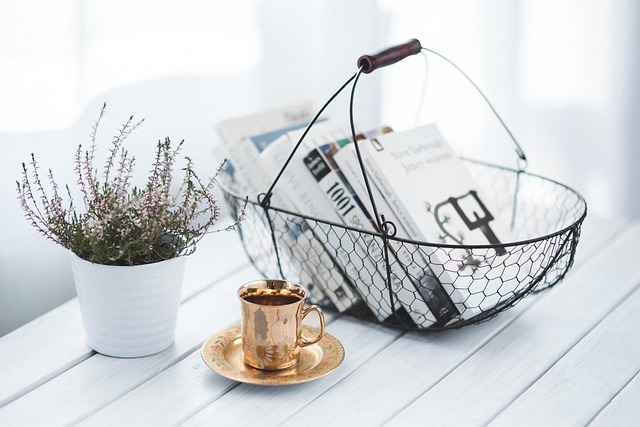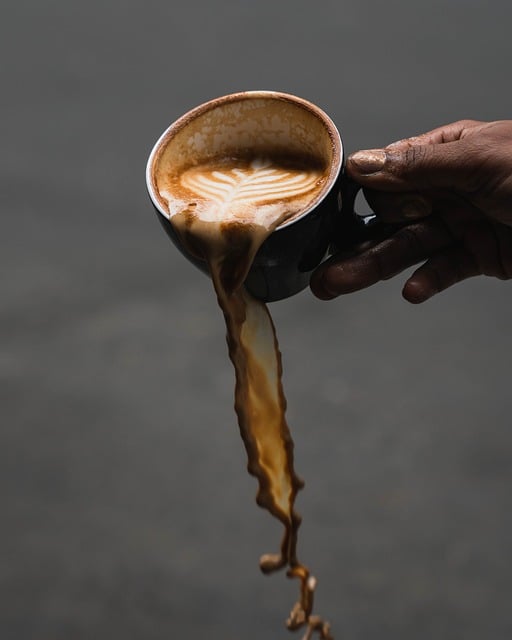The article provides a comprehensive guide on selecting the best Jims coffee filter for an enhanced brewing experience. It explains that the highest quality coffee filters are made from premium number 4 paper, available in both bleached (white) and unbleached (brown) options. Bleached filters offer a cleaner taste by minimizing paper flavor, while unbleached filters can add a subtle papery note that some prefer. The best filters have finer weaves, uniform pore sizes for optimal extraction, and maintain shape to prevent tears or rips affecting taste and clarity. When choosing, consider your taste preferences, environmental impact, and the filter's compatibility with your brewing device. Both bleached and unbleached options have their merits, with the decision coming down to personal preference and the flavor profile you desire. The article emphasizes that the right coffee filter can significantly influence the purity, flavor, and overall quality of your cup of coffee, making it a key factor in achieving the perfect brew.
When it comes to crafting the perfect cup of coffee, the role of a coffee filter cannot be overstated. Selecting the best coffee filter is crucial for achieving clarity and flavor in your brew. This article delves into the qualities that distinguish an exceptional coffee filter from the rest, focusing on the materials used and the intriguing debate between brown and white filters’ impact on your coffee’s taste. From understanding what constitutes a high-quality filter to exploring the best coffee filters on the market, we will guide you through the essentials to ensure your morning cup is as flavorful as it can be. Join us as we filter through the facts to bring you the definitive guide on choosing the highest quality coffee filter for your kitchen.
- Understanding the Essentials of a High-Quality Coffee Filter
- Material Matters: Assessing the Best Coffee Filters on the Market
- The Color Conundrum: Brown vs. White Coffee Filters and Their Impact on Brew Quality
Understanding the Essentials of a High-Quality Coffee Filter

When selecting a coffee filter, the material from which it is crafted plays a pivotal role in determining the quality of your brew. The best coffee filters are often made from high-quality paper, specifically bleached or unbleached number 4 paper, which is recognized for its superior filtration capabilities and durability. Bleached filters, such as white coffee filters, offer a cleaner cup as they reduce the chance of imparting paper flavor into your coffee. Conversely, unbleached filters, like their brown counterparts, can provide a more environmentally friendly option and may subtly influence the taste with a hint of paper flavor, which some coffee aficionados appreciate.
The finest coffee filters are designed to ensure optimal extraction, allowing for the perfect balance of flavor and clarity in your cup. They have finer weaves and uniform pore sizes that prevent over-extraction or sediment from passing through. The highest quality coffee filter should also be able to maintain its shape throughout the brewing process, avoiding rips or tears that could compromise filtration. Additionally, the best filters are often pre-folded and have a proper fit for common brewing devices like pour-over cones or Chemex-style carafes, ensuring consistent results every time you brew. When choosing between white and brown coffee filters, consider your personal taste preferences and the impact on both the flavor of your coffee and your environmental footprint. Whether you prefer the clean profile of white filters or the subtle character imparted by unbleached ones, prioritizing high-quality materials will elevate your home brewing experience to new heights.
Material Matters: Assessing the Best Coffee Filters on the Market

When selecting a coffee filter, the material from which it’s crafted plays a pivotal role in determining the quality of your brew. The best coffee filters are made from high-grade paper, typically bleached or unbleached pulp, each offering distinct advantages. Bleached coffee filters, commonly available in a light brown hue, are known for their uniform porosity, ensuring consistent extraction and minimal sediment in your cup. They provide a clean, clear taste, as the bleaching process removes impurities from the paper fibers, which can otherwise impart a papery flavor to your coffee. On the other hand, unbleached white coffee filters are preferred by those who prioritize environmental concerns and a more natural taste. These filters are made from pulp that hasn’t undergone chemical treatment, resulting in a slightly denser weave that can affect the filtration speed and the flavor profile of your coffee. Both types have their merits, with the choice often coming down to personal preference, environmental impact, and the desired flavor characteristics of the final brew.
In the quest for the highest quality coffee filter, it’s essential to consider the fineness of the filter paper, its durability during use, and its ability to maintain shape throughout the brewing process. The best coffee filters on the market are those that strike a balance between efficiency and gentle handling of the coffee oils and grounds. They should allow for optimal extraction while preventing over-extraction, ensuring a well-rounded flavor without bitterness or sediment. When shopping for a coffee filter, look for options that are endorsed by coffee aficionados and baristas, as they often provide insights into the practical performance of these filters in real-world settings. Remember to consider the compatibility of your coffee maker when selecting a filter; some models may require specific sizes or shapes to function correctly. By weighing the material, design, and purpose, you can select a coffee filter that will consistently produce a quality cup of coffee tailored to your taste preferences.
The Color Conundrum: Brown vs. White Coffee Filters and Their Impact on Brew Quality

When it comes to brewing the perfect cup of coffee, selecting the right coffee filter is a critical step that can significantly influence the taste and quality of your beverage. The best coffee filter is one that not only effectively filters out the unwanted sediments but also preserves the aromatic oils and flavors that give coffee its rich character. Coffee filters come in two primary colors: brown and white, each offering distinct advantages that can affect the brewing process and the final cup’s quality.
The material of the coffee filter plays a pivotal role in determining its performance. The highest quality coffee filters are often made from natural fibers such as paper or from high-tech materials like gold or metal. These materials are chosen for their ability to allow the right balance of oils and fine particles through while catching the finer sediments that can muddy your coffee. A top-tier coffee filter, whether brown or white, should have a uniform weave and thickness, ensuring consistency in filtration. This helps in extracting the optimal flavors from the coffee grounds, leading to a more nuanced and flavorful cup of coffee.
Brown coffee filters are typically made from natural paper fibers that are unbleached, giving them a distinct color. These filters are often preferred by enthusiasts who prioritize purity and minimal interference with the coffee’s inherent taste profile. The absence of bleaching agents ensures that no additional flavors or chemicals seep into your coffee, preserving its natural qualities. On the other hand, white coffee filters are usually bleached to achieve their lighter hue. While this process can sometimes impart a neutral flavor that doesn’t alter the coffee’s taste, it is essential to choose filters that have been treated with food-safe bleach to avoid any unwanted aftertastes or contamination.
Ultimately, the choice between brown and white coffee filters hinges on personal preference and specific brewing needs. The best coffee filter for you will depend on your desired taste profile, the type of coffee machine you use, and your sensitivity to subtle flavor variations. Whether you opt for the rustic charm of a brown filter or the clean finish of a white one, ensuring that it is from the highest quality material will undoubtedly elevate your coffee experience, bringing out the nuanced flavors that make each cup unique and memorable.
When selecting a coffee filter, the quest for the highest quality brew leads discerning coffee enthusiasts to consider factors beyond the commonplace. The best coffee filters, crafted from superior materials, offer unparalleled purity and efficiency in the filtration process, ensuring each cup captures the essence of the beans. While both brown and white coffee filters serve their purpose, the choice between them can subtly influence the flavor profile and clarity of the brew. Ultimately, the finest coffee filter is one that aligns with your personal taste preferences and the specific characteristics of your coffee. Investing in a high-quality coffee filter like those outlined in this article will elevate your coffee experience, transforming a daily ritual into a moment of culinary delight.
